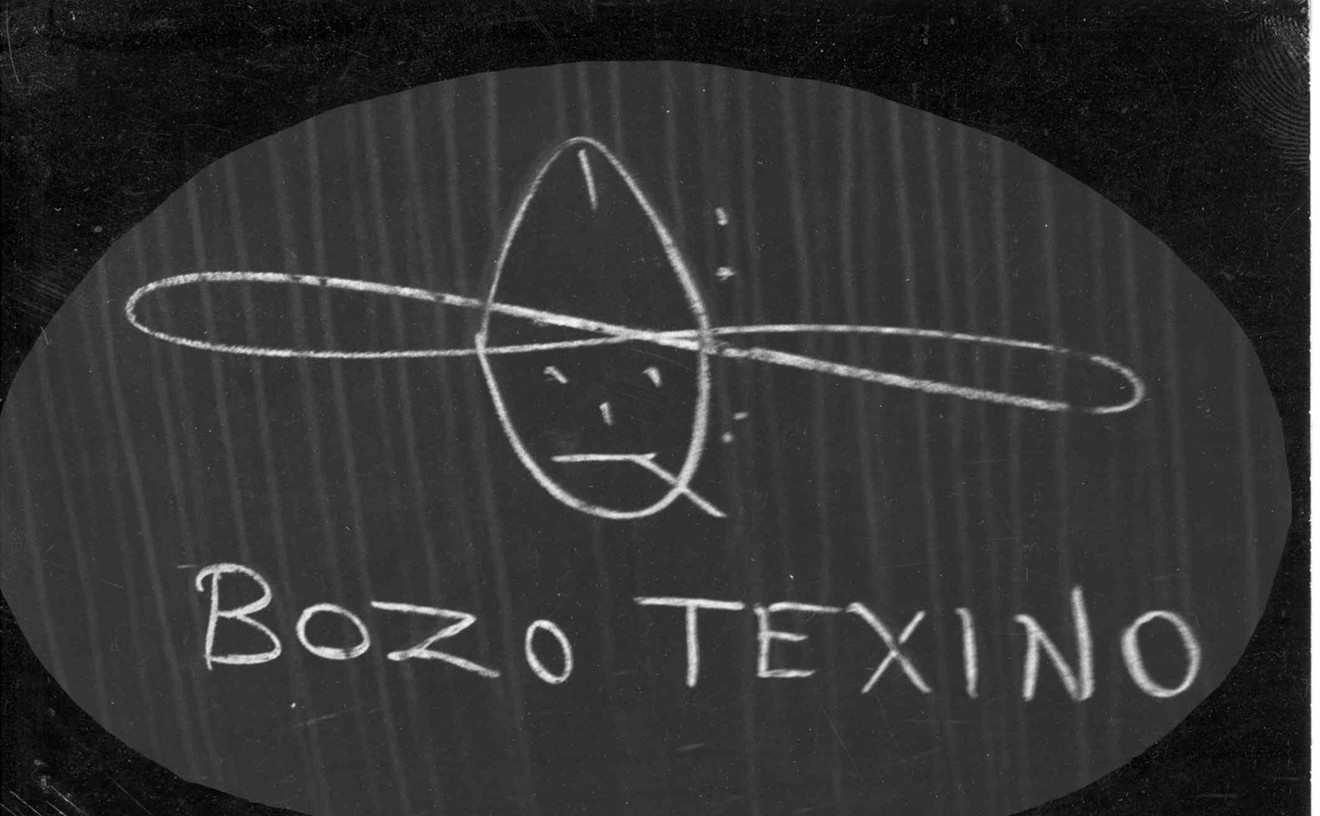Westword: It seems like this book is a little bit lighter a take on things than your previous books have tended to be. What made you want to take this approach? David Sirota: Yes, you have perceived correctly. Yeah, the answer is that, obviously, I'm a child of the '80s, and I was deeply impacted by that decade and that pop culture -- and for many reasons, that pop culture is back in a lot of ways. So I started thinking about why it's back -- and some of it is Hollywood laziness, some of it is coincidence -- but it's really kind of eerie, too, with the crisis at the Japanese nuclear power plant happening; you know, the last time that kind of thing was happening was at Chernobyl and Three Mile Island, in the '80s. So there's a real zeitgeist of the '80s returning.
So I'd been reading some social research, and one thing that's been coming up is that pop culture and entertainment -- especially for children -- is just as formative to how we see the world as news; as children, this entertainment that's packaged as non-political, it can be as reality-shaping as reality is.
And the ways that this entertainment can influence how we see the world is -- especially in the '80s -- can be very pervasive. Like, I was sitting at home one Saturday night, like a loser, and I was watching Ghostbusters for about the 12 millionth time, and I realized, "wow, these guys are, like, private contractors." You know, the government can't do it, the military can't do it, the police can't do it -- so who you gonna call? Private contractors. So that's one idea that just kind of got implanted then, and is still something that really influences how we think today.
[Heavy background noise]
God, I really miss Denver. I'm in New York right now, and I just hate big cities like this. Too crowded.
WW: You grew up on the East Coast, though -- in Philadelphia, right? What brought you out to Denver? DS: Well, the long version is, before I came to Denver, I was living in Montana -- I went to school in Chicago and worked in Washington, D.C., and I'd met a guy named Brian Schweitzer, who later became the governor of Montana. So I was living in Helena and working for him, and my brother was living in Denver then and doing some medical training. My wife and I wanted to stay in the west because we really liked it out here, and we wanted to be close to some family as well, so that's kind of how we ended up in Denver.
WW: We've talked a little bit so far about some of the themes in Back to our Future -- can you give me a little bit more specific idea of what's in the book? DS: Sure. The book really has four basic sections. There's a section about how the 1980s redefined our memories and our ideas of the 1950s and the 1960s, basically by remaking our memories of the 1950s into this idyllic time of calm and prosperity, and remaking the 60s into things that are bad, things like chaos and assassination -- and so that '50s vs 60s battle is still something that influences groups like the Tea Party and so forth, and it really divides along political lines.
The '80s also created this ideal of "racial transcendence," about how black people could basically become acceptable to white America if they could "transcend" their race -- and this is not a critique of Bill Cosby or Cliff Huxtable or Barack Obama, or anyone else who kind of embodied that; it's critical of white America for demanding that black people in the spotlight transcend, that they essentially give up their cultural identity to become palatable to whites -- it's really condescending.
There's also a section called The Jump Man Chronicles" -- you know, the Nike symbol of the one guy jumping. The '80s taught us to be more individualistic, more self-centered, more narcissistic, more about material wealth. It also taught us about how the government can't do anything right.
Then there's a section on militarism, about how a lot of the pop culture in the 1980s used Vietnam to come up with reasons why we didn't win -- namely, what I call the "hands tied behind their back" myth, about how "We're not going to send people to war with their hands tied." The idea is that we lost Vietnam because we didn't "let the troops win" -- that's actually is one of the first quotes out of John Rambo's mouth in Rambo 2, "are you going to let us win this time?" And that wasn't created by Rambo -- that's what Ronald Reagan was saying.
You know, the 1980s really was the time when there was this conflation between entertainment and real -- Reagan was constantly referencing movies and pop culture in his speeches; you know, he'd been an actor himself. And so people might say, oh, The A Team wasn't a big deal, Dukes of Hazzard wasn't a big deal -- but The A-Team, this one one of the highest rated shows for preteens, this show with the premise of four, you know, private contractors on the lam from a government that can't do anything right. This stuff has a real impact on how you think about your world.
David Sirota celebrates the release of Back to Our Future with an '80s-tastic party tonight at 6 p.m. at the Mercury Cafe -- come dressed as your favorite '80s pop icon and win fabulous prizes. Tickets to the party are $7.60










